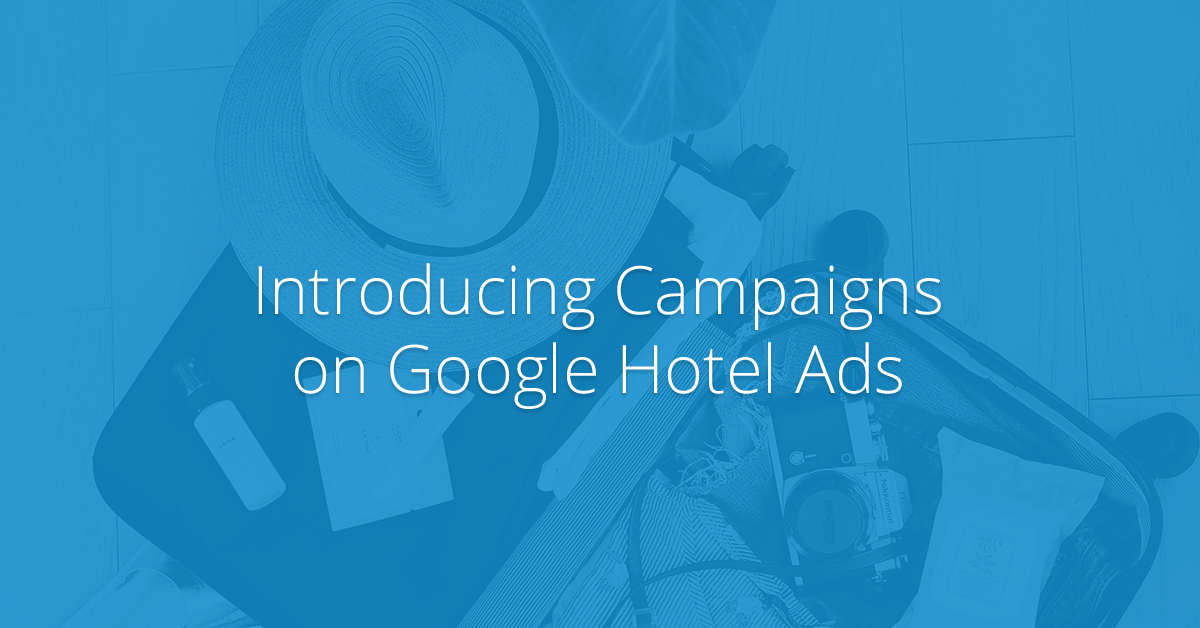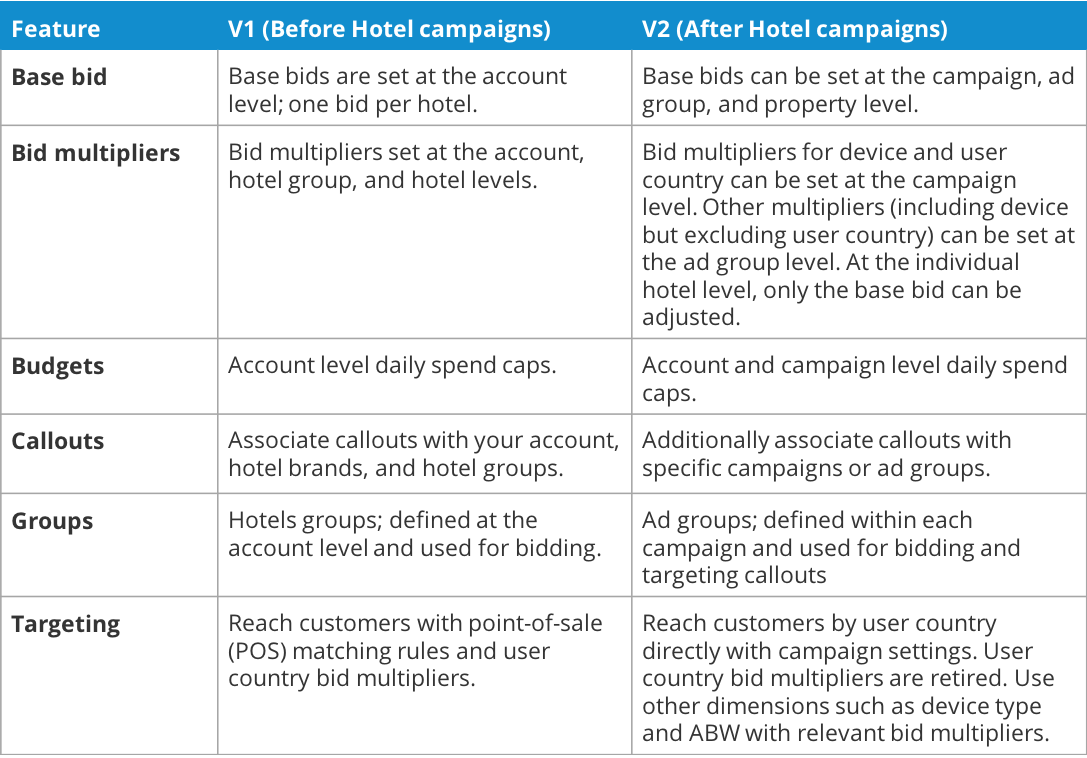Blog
Introducing Hotel Campaigns on Google Hotel Ads
Published April 27, 2018
by Jarrod Simpson

Over the course of the past few years, the travel industry has watched as Google has grown exponentially and become one of the leading hotel metasearch providers in the market. Today we’re discussing Google’s newest Hotel Ads product – Hotel campaigns. Google began the soft rollout of Hotel campaigns on March 8th, marking a major milestone in the ongoing evolution of Google Hotel Ads. The experience of advertising a hotel will now more closely mirror the experience of advertising with similar AdWords products. Starting in June, Google will completely transition all accounts to this new structure. So, what exactly does this update mean for you? Read on for our introductory overview of Hotel campaigns’s major changes and potential benefits.
The Launch of Hotel Campaigns on Hotel Ads
While Google has been tinkering with Hotel Ads for a while, the addition of campaigns marks the most significant change to the program to date. Hotel Ads’s end users won’t notice a difference, but marketers will need to completely rethink the way that they structure their Hotel Ads programs. To begin with, the additional campaign level now allows advertisers to set multiple bid variations for a unique property, as opposed to the previous structure which only allowed for one variation. Hotel campaigns will give advertisers more freedom and flexibility in how they adjust their marketing budgets and strategically segment their audiences. That said, this new structure will also mean that building and managing a campaign structure will become more complex. Let’s take a closer look at some of the most significant changes made to Hotel Ads’s features after the introduction of campaigns:
The Benefits of Hotel Campaigns
Marketers can expect to benefit from these changes in several ways. Broadly, this new structure means opportunities for heightened specificity and more targeted marketing tactics. More specifically, advertisers can look forward to:- Improved bid precision – The Hotel campaigns’s structure separates bid multipliers, allowing advertisers to exert more precise control over bids. For example, before Hotel campaigns, to capture the demand for last-minute mobile bookings, an advertiser would increase the multiplier for mobile searches. However, increasing the multiplier would heighten visibility for all mobile searches (not just same-day searches). Hotel campaigns makes it possible to create a campaign to specifically target same-day mobile bookings and adjust the advanced booking window and stay length multipliers, thus capturing the right audience without disrupting other strategies.
- Set specific budgets and bid strategies – Budgets and bid strategies can now be set at the campaign level. This will be especially beneficial for advertisers that leverage multi-source funding or incremental budgets of funds targeted at specific goals, such as driving bookings to a specific region or low-demand/low-occupancy time periods.
- Better monitoring and bid changes – Hotel campaigns promotes the flexibility of bidding at multiple levels, including setting distinct default bids. This means that advertisers can now group and optimize properties based on performance. Advertisers with broad inventory sets that frequently add new hotels will find this new feature especially useful.
- Opportunity to segment by audiences – Campaigns will also make it easier than ever for advertisers to capture demand for highly valuable customers by making it possible to bid by specific customer segments or audiences.

You may be interested in
GET IN TOUCH
Ready to get started?
Don’t let your brand get lost in the noise. Partner with Koddi to unlock the power of commerce media and transform the way you engage with your customers. Our team of experts is here to help you navigate complexities and develop a strategy that drives results — no matter what industry – in as little as 45 days.